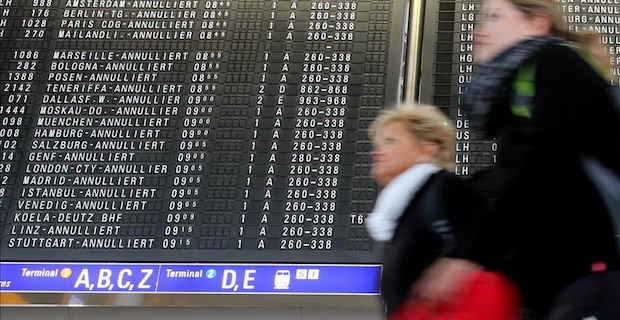EU member states agreed on Wednesday on a coordinated approach to open the bloc’s borders to vaccinated non-EU nationals. “EU ambassadors agreed to update the approach to travel from outside the European Union,” Christian Wigand, the European Commission’s spokesperson on justice affairs announced at the daily press briefing.
“The Council [of the European Union] will now recommend that member states lift some of the current restrictions, in particular for those vaccinated with an EMA-approved vaccine,” he said, referring to the four jabs authorized by the European Medicine Agency.
The bloc decided to restrict non-EU nationals' entry to its territories last March in order to contain the spread of the COVID-19 pandemic.
Earlier this month, the European Commission proposed that EU member states allow non-EU travelers to enter if they have received EU-approved COVID-19 vaccine at least 14 days before their arrival.
Currently four vaccines – Pfizer/BioNTech, Moderna, AstraZeneca and Johnson&Johnson – are authorized by the EMA.
The decision has yet to be formally approved by EU governments, and it will enter into force in late June the earliest when the bloc starts to apply the COVID-19 certificate system for its own citizens.
In addition to that, EU countries will also expand the list of countries with great epidemiological situations whose citizens can enter the bloc regardless of their vaccination status.
Currently, only residents of Australia, China, New Zealand, Rwanda, Israel, Singapore, South Korea, and Thailand can travel with any non-essential reason to the EU.


 Prime Minister Keir Starmer's 2025 Easter message
Prime Minister Keir Starmer's 2025 Easter message After Nesil Caliskan a by-election will be held in Jubilee ward in Enfield
After Nesil Caliskan a by-election will be held in Jubilee ward in Enfield Publishing the analysis, Labour’s Cllr Ergin Erbil said Everybody in Enfield deserves basic rights
Publishing the analysis, Labour’s Cllr Ergin Erbil said Everybody in Enfield deserves basic rights Gaza-Israel conflict Statement from Cllr Ergin Erbil, Leader of Enfield Council
Gaza-Israel conflict Statement from Cllr Ergin Erbil, Leader of Enfield Council The European Union called on Turkey to uphold democratic values
The European Union called on Turkey to uphold democratic values Turkish citizens in London said Rights, Law, Justice
Turkish citizens in London said Rights, Law, Justice The Council of Turkish Cypriot Associations Geneva response letter
The Council of Turkish Cypriot Associations Geneva response letter Sustainable Development and ESG, Will This Become the Course for Turkic World
Sustainable Development and ESG, Will This Become the Course for Turkic World The 'Prince of Paris' has impressed in his first EuroLeague season
The 'Prince of Paris' has impressed in his first EuroLeague season Saran Media And Euroleague Basketball Extend Media Rights Partnership for Four More Years
Saran Media And Euroleague Basketball Extend Media Rights Partnership for Four More Years Will Rangers be Jose Mourinho’s next victim?
Will Rangers be Jose Mourinho’s next victim? Jose Mourinho's Fenerbahce face Rangers on Thursday
Jose Mourinho's Fenerbahce face Rangers on Thursday Barclays has become the biggest UK lender so far to cut mortgage rates
Barclays has become the biggest UK lender so far to cut mortgage rates THE SPRING STATEMENT EXPLAINED, UK ECONOMIC OUTLOOK AND GROWTH FORECASTS
THE SPRING STATEMENT EXPLAINED, UK ECONOMIC OUTLOOK AND GROWTH FORECASTS Launch of Made in Enfield gift shop to celebrate local artists and designers
Launch of Made in Enfield gift shop to celebrate local artists and designers Trial used smart Wi-Fi sensors for live building occupancy data to optimise
Trial used smart Wi-Fi sensors for live building occupancy data to optimise
















